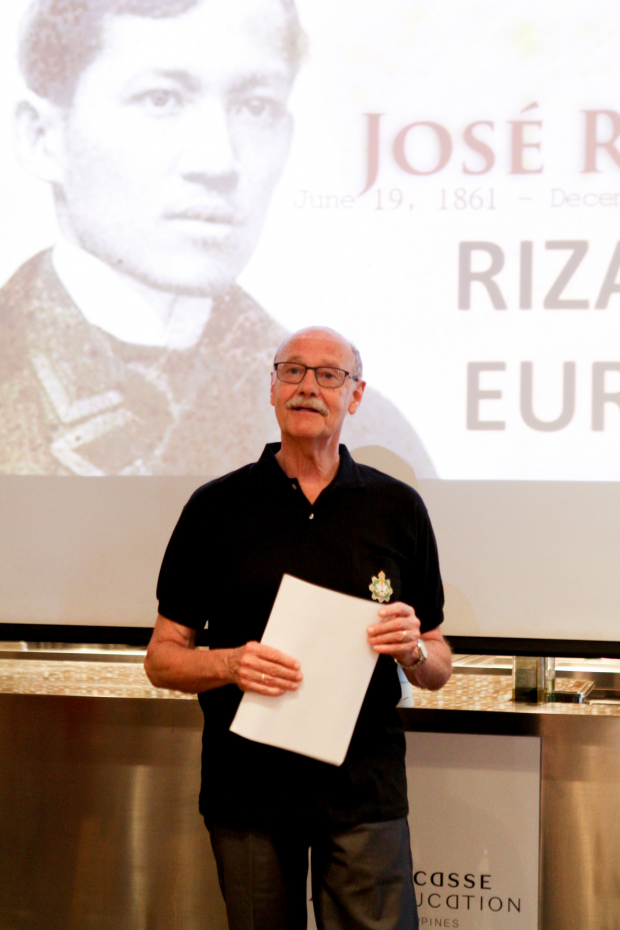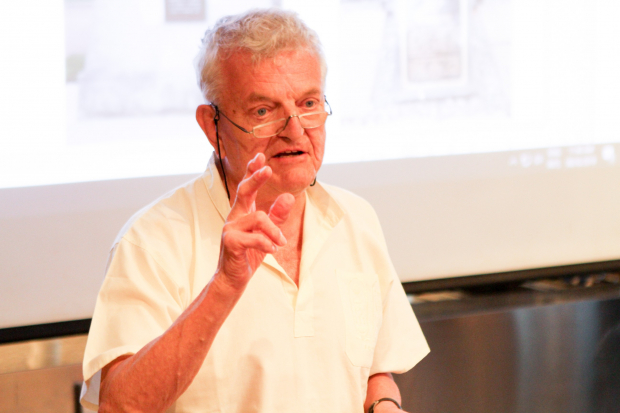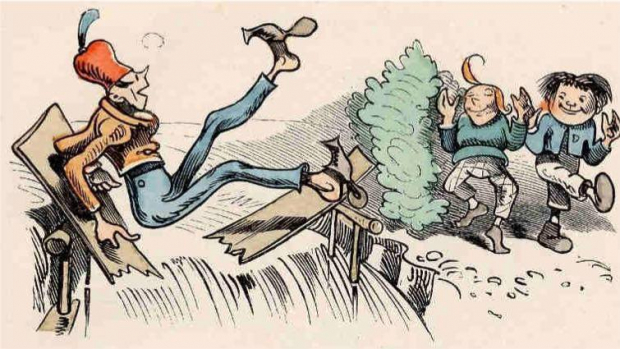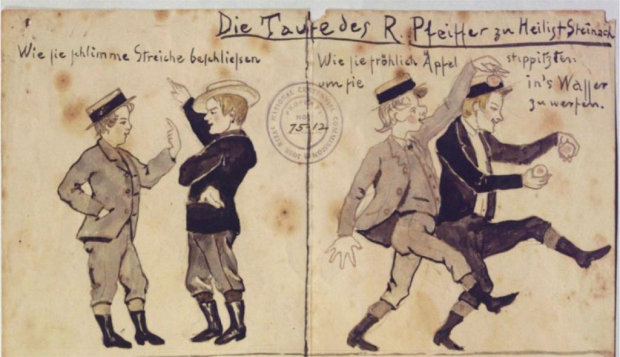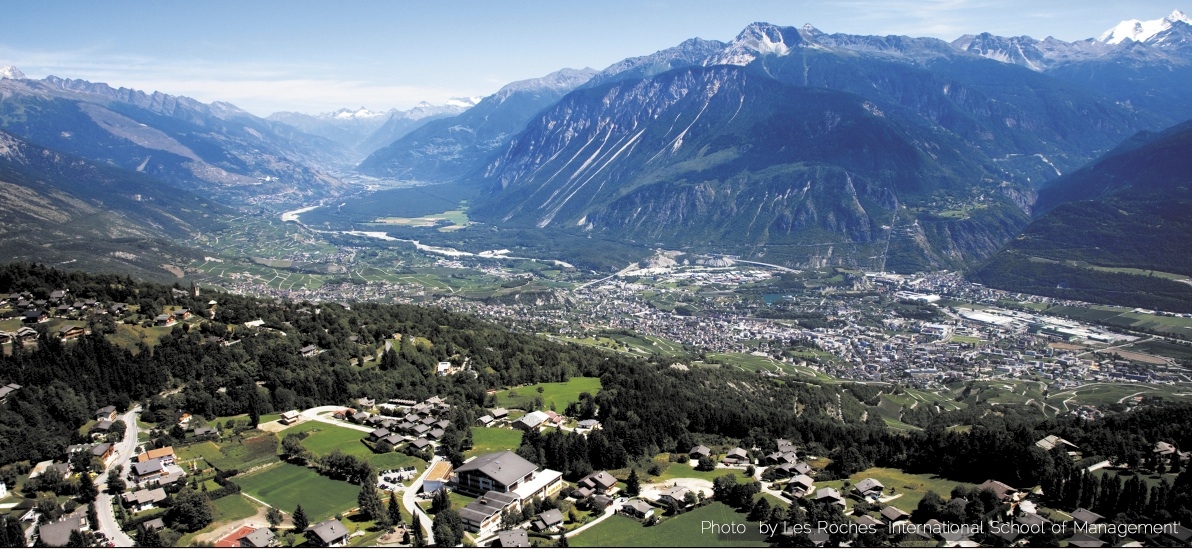‘INSPIRIEREN’ Stories of Jose Rizal In Germany
As recounted by Matt Jason Pua Phee, Kanishka Mirchandani, Zyrah Castro, Geraldine Chapa, Regina Amancio, Althea Leona P. Lobangco.
Friday March 8, Enderun Colleges invited Lucien Spittael, a leading Rizal scholar in Europe and Dr. Fritz Hack, the great grandson of Pastor Karl Ullmer who lodged our national hero, Dr Jose Rizal, in his Wilhelmsfeld home for several months, to share their lore about those historic times of Rizal in Europe. Thus their reflections on the past became the ‘inspirieren’ for our students and a rich resource for understanding the contribution of Rizal to nationhood and today’s outlook on our evolving democracy.
“I thought that information about Rizal’s journeys and whereabouts in Europe were lost in history but fortunately these were documented and became the ‘inspirieren’ of our forum,” notes Matt Jason Pua Phee. “Through his journeys, Rizal’s own views evolved and matured to a ‘world level.’ He studied not only medicine, but also several languages so he could fit in, socialize and communicate easier. All throughout, his main objective was to liberate our country from the colonizers.”
“From the forum, Inspirieren, I surmised that the research of Mr. Spittael was definitely not a bed of roses. Just as roses have thorns, Sir Lucien had his share of frustrations and disappointments, but these were compensated by his discovery of several unpublished, and as yet unknown Rizal letters and various artifacts in Berlin. He also located several original copies of Rizal’s novels in Europe. From the two speakers, I learned much more about the life of Rizal than one can find on the internet,” noted Kanichka Mirchandani.
“I also appreciated meeting nine of the Rizal descendants who enriched the presentations with their acknowledgment of the stories and anecdotes,” adds Kanishka. The family reunion brought together: Ms. Gemma Cruz Araneta, Ms International 1971; Ms. Malou Villaroman, who visited Germany and Belgium often and personally knows both speakers; Prof. Howard Leowen, lecturer in Asian Studies at the University of Nurenberg, Germany, his daughter Sophie Leowen, and his mother Mrs. Encarnacion Leowen; Mr. Pedro Sy-Quia and his sister, Ms. Noelle Didit Sy-Quia; Mr. Emmanuel Reyes, retired IT consultant and now co-managing a major BPO, and his wife, Josephine.
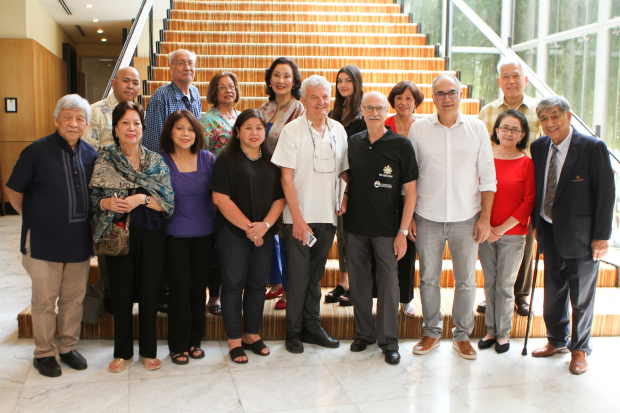
Enderun Colleges President Edgardo Rodriguez (leftmost) and Enderun Colleges Department Head of General Education Carlos Arnaldo (rightmost), Dr. Fritz Hack and Mr. Lucien Spittael (middle) together with the descendants of Jose Rizal from the family of his sisters, Saturnina and Maria.
In Germany, from his wanderings in the Odenwald or the ‘old forest,’ Rizal frequently encountered Pastor Karl Ullmer, great grandfather of our speaker, Dr. Fritz Hack, as the pastor also liked to take walks in the same forest, and his house was there amidst the thick trees. Rizal proposed that he stay with the Protestant pastor, to learn German. “Yes, on condition you wake up every morning at 7 and we discuss William Tell in German,” was his response, according to Dr. Hack.
“I realized how location can be important to Rizal so he could finish his move, Noli Me Tangere,” says Zyrah Castro. “Wilhelmsfeld gave him the ambiance, the peace, the forest silence and that intellectual tolerance of the Germans!”
For this 3-month sojourn, Rizal was severely criticised for cozying up to a Protestant and his Jesuit teachers even accused him of reneging on his Catholicism to become a Protestant. “No,” said Dr. Hack, “my great grandmother accompanied him to Catholic mass every Sunday in the next town.”
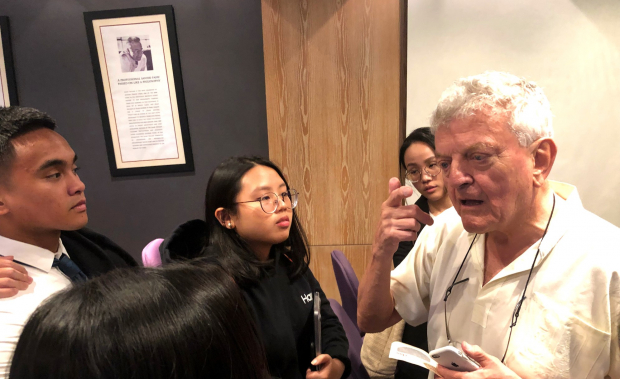
Dr. Fritz Hack illustrates to Enderun Colleges students how a person with severe cataract cannot see clearly, one of the reasons why Jose Rizal went to study medicine to treat his mother’s eyes.
Over several weeks, the Pastor was issued a reprimand by the Protestant Council, based on the rumorings of his own parishioners. The Pastor was accused of having a glass of wine over dinner in another town with a brown foreigner, probably a Muslim. But Pastor Ullmer replied, “All that is not exactly true, we did not have just a glass of wine, but two or three. And my companion was not a Muslim, but highly educated and scientific Catholic, and it is a pity, he is soon going to leave us.”
“I liked the way Lucien Spittael talked about Rizal in Germany,” remarked Geraldine Chapa. “He said that he was a popular student, because of his drinking sprees! On the serious side, Rizal wrote a poem, ‘A los Flores de Heidelberg,’ in which the flowers become his symbol of the motherland, Filipinas, and the poem speaks of his loyalty to his native land. The philosophical and religious tolerance of the Germans, like the calmness of the forest, opened his discussions with the pastor and helped him tone down his vitriolic phrases in the Fili. Rizal noted that the Protestant Pastor kept a close friendship with the Catholic priest of the next town, a phenomenon not possible in the Philippines in his time because of the dominant belief that the friars were the only true purveyors of the words of god.”
“The first thing that struck me,” said Regina Amancio, “was how Jose Rizal’s life story was able to touch and influence the lives of so many people, and particularly, non-Filipinos. Dr. Fritz Hack is the great grandson of the man who taught Rizal German and how to create cartoons, and it amazed me that even though Dr. Hack never knew Rizal personally, he is so attached to his story and his person. His great grandfather must have passed down some fond memories about Jose Rizal which sparked their family’s interest.
“My next take away was realising how talented and smart Jose Rizal was. Dr. Hack recounted how Rizal quickly learned German, to the point that he translated William Tell into Tagalog, and later, several stories of Hans Christian Andersen.
“And lastly, Sir Lucien’s story about Rizal’s first departure from the Philippines showed me that he must have had plenty of faith and perseverance to travel so long to a new country with only 300 pesos in his pocket and not knowing when or how he would get money in the future. To me, it meant that Rizal was ready to take risks for his family and his country.”
“The last time I listened to a lecture about Rizal, I was in grade school and I really wasn’t ready to listen, as I feared it would be boring,” says Althea Leona P. Lobangco. “Perhaps the typical mindset of a grade schooler. But from today’s sharing with two specialists, I now find that his achievements were truly eye opening and inspiring. I was really moved by the talk, and I hope more people can be inspired by the contribution of Rizal to our nationhood today.”
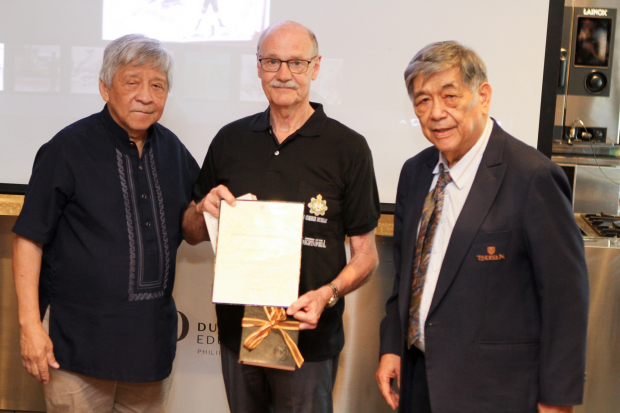
Enderun Colleges expresses its appreciation to Mr. Lucien Spittael for his engaging stories as a leading Rizal scholar in Europe.
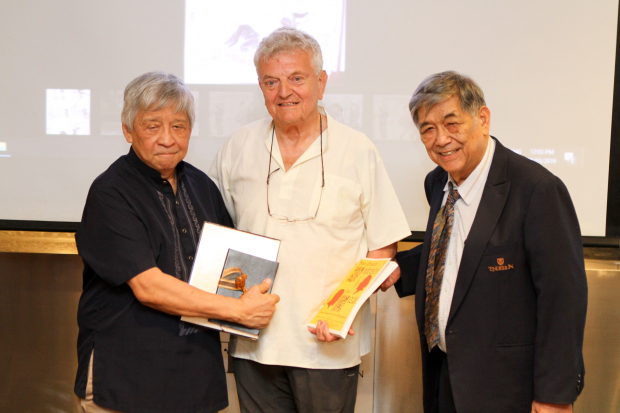
Enderun Colleges President Edgardo Rodriguez (leftmost) and Enderun Colleges Enderun Colleges Department Head of General Education Carlos Arnaldo (rightmost) presents Certificate of Appreciation and a copy of a recent publication entitled Hans Christian Andersen and Jose Rizal: From Denmark to the Philippines to Dr. Fritz Hack (middle).

